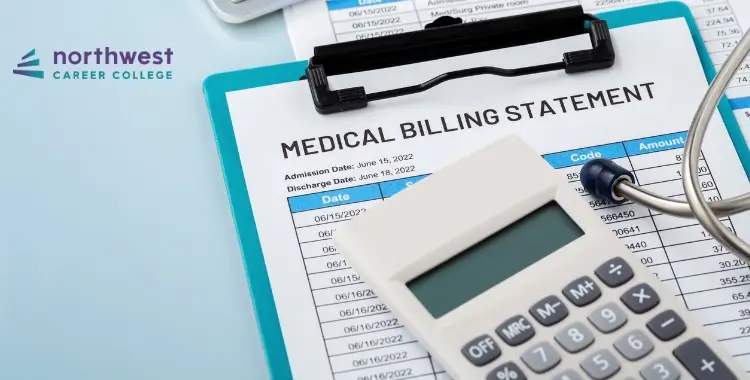How to Prepare for a Career in Medical Billing and Coding
- Medical Billing and Coding
- May 10, 2024
- 2.4k views
- 4 min read

Medical billing and coding offers a rewarding and challenging career path. As healthcare continues to evolve, the demand for skilled medical billing professionals is rising, making this a promising career choice for many.
In this blog post, we’re excited to share five essential tips that will guide you through the steps necessary to kick-start your journey in medical billing and coding.
Table of Contents
What is Medical Billing and Coding?
Medical billing and coding are key processes in the healthcare industry that involve converting medical services into standardized codes for billing and insurance purposes. Here’s how each part works:
Medical Billing: When patients receive treatment, medical billers translate the details of their procedures, diagnoses, and treatments into universally recognized codes. They use these codes to create and submit insurance claims.
The health insurance company then reviews these claims and reimburses the healthcare provider accordingly. Medical billers also follow up on these claims to ensure the healthcare provider receives timely payment.
Medical Coding: While medical billers often assist healthcare providers by reviewing diagnostic and procedural codes related to medical office encounters (as described above), medical coders usually take a more active role in coding more complex combinations of surgical or emergency procedures performed in hospitals using HCPCS codes (the hospital equivalent of CPT codes).
Tip 1: Invest in Education and Training
A good education and extensive training form the foundation of an effective medical billing and coding career. Look for an accredited program that covers all the critical areas, including medical terminology, coding systems like ICD-10-CM and CPT, insurance billing procedures, and healthcare regulations. Opt for institutions or online courses offering hands-on experience, internships, and other opportunities to gain practical skills and real-world exposure.
Tip 2: Be Apprised of the Industry Standards and Trends
To stay current with industry standards, changes in coding, and regulatory shifts, it is crucial to subscribe to professional journals, join industry associations, and participate in continuing education programs. Pursuing professional certifications, such as the Certified Billing and Coding Specialist (CBCS), Certified Professional Coder (CPC), or Certified Coding Specialist (CCS), is a great way to validate your expertise and establish credibility.
Tip 3: Think Logically and Solve Problems
Medical billing and coding require critical thinking and problem-solving skills. Being detail-oriented and precise when assigning the correct codes and procedures is crucial. This critical thinking helps make sense of complex medical records and resolve coding discrepancies. Practicing attention to detail and a systematic approach ensures error-free and efficient coding processes.
Tip 4: Good Communication Skills
Successful medical billers and coders will be good communicators, able to connect with health providers, insurance companies, and patient liaisons. They will build interpersonal skills that help clarify issues while answering billing questions and work in a manner that communicates coding issues while ensuring proper reimbursement. They will also learn to leverage technology for their benefit, using tools like the EHR and billing software to facilitate smooth communication and assure efficiency.
Tip 5: Seek Out Opportunities for Professional Development
There are numerous professional growth and development opportunities in medical billing and coding. Consider expanding your skill set by enrolling in additional training programs, such as medical auditing, medical credentialing, or compliance. Seek mentorship from seasoned professionals to guide you on your career path. It’s also essential to network with colleagues and industry experts to stay current with job openings, career advancement opportunities, and emerging trends.
Conclusion
To sum it up, pursuing a medical billing and coding career demands dedication and continuous learning. Investing in a complete education, keeping up with industry standards, improving analytical skills, communicating effectively, and seeking opportunities for professional growth are crucial. By doing so, you’ll be positioning yourself for success in this exciting and rewarding field.





